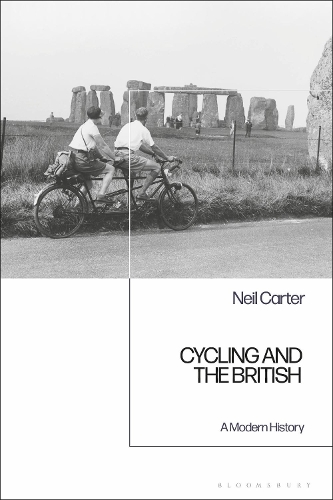
Cycling and the British: A Modern History
(Hardback)
Available Formats
Publishing Details
Cycling and the British: A Modern History
By (Author) Dr. Neil Carter
Bloomsbury Publishing PLC
Bloomsbury Academic
10th December 2020
United Kingdom
Classifications
Tertiary Education
Non Fiction
History of sport
European history
Social and cultural history
796.60941
Physical Properties
Hardback
368
Width 156mm, Height 234mm
694g
Description
Cycling is currently enjoying a boom in popularity. What are the reasons behind this phenomenon How have perceptions and the popularity of cycling shifted This book charts the historical development of cycling both as a leisure and sporting activity since the 19th century and explores the wider political and cultural context in which cycling in Britain emerged. In particular, it examines cyclings relationship with environmental politics and its place in popular culture. Neil Carter successfully traverses several historical sub-disciplines, including the history of transport, leisure, sport, medicine and politics, employing the analytical tools of class, gender, political culture, the role of the state and commercialism to demonstrate how British identity has shaped and been shaped by cycling. At a time when it has become part of debates over transport and health, Cycling and the British: A Modern History provides a timely and clear analysis of the changes and continuities in attitudes towards cycling.
Reviews
As a clear and detailed guide, it is an invaluable corrective to a multiplicity of lazy assumptions and popular myths often recirculated in generalist accounts ... This is a work I will return to frequently. * Technology and Culture *
[T]his well-written and engaging monograph will appeal to bicycle historians and enthusiasts as well as sport historians and the general reading public. * Idrottsforum Org *
This is the definitive work on the social and cultural history of the bicycle. From the Penny-Farthing to Team Sky, Neil Carter tells the story not just of cycling, but also of British societys changing relationship with the bike. * Tony Collins, Professor of History, Institute of Sports Humanities, University of Buckingham, UK *
This is by far the best history of cycling in Britian. Carter has read very widely both on cycling as a recreation and as a competitive sport. He sets cycling in a broad context of social class, female emancipation and profound shifts in transport, health and enviromental policy without losing sight of the events, personalities,and the great races - Olympic medals and all - which bring the story alive. * Richard Holt, Emeritus Professor, International Centre for Sports History and Culture, De Montfort University, UK *
From penny farthings to safeties to mountain bikes and recumbent tricycles, Neil Carter explores how cycling has been making a political statement for 150 years. At first an elite symbol, the cycle now represents the openness and companionship of English society. It is central to the image of Englishnessthe slow paced, bucolic, rural idyll. * Duncan R. Jamieson, Professor of History, Ashland University, USA *
In terms of national identity and patriotic fervour, its often the team sports of cricket, football and rugby that capture the imagination. And yet, as Neil Carter shows brilliantly in Cycling and the British: A Modern History, it is the bike that has fascinated and charmed the public consciousness, and in many ways, shaped British history. From the Victorian cycling craze, through touring and cycling clubs, to the British stars of the Tour de France and the Olympics, Carter has meticulously researched across a staggering array of sources to produce the definitive history of cycling. It is a wonderful book that demonstrates how such a run of the mill piece of equipment that we all take for granted, is as important to British history as Stephensons Rocket or Whittles jet engine and transformed society in equally radical ways * Mike Cronin, Professor of History, Boston College *
Author Bio
Neil Carter is Senior Research Fellow at the International Centre for Sports History and Culture, De Montfort University, UK.
